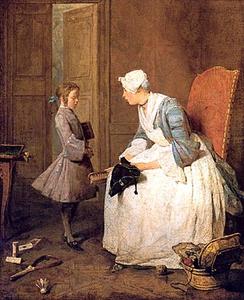Rechtub Klat
A similar method is used to create 'Largonji' or 'Loucherbem', the French butchers' slang first recorded in the nineteenth century; though it is doubtless much older. This is a little more complex than the Aussie version: the first letter of the word is moved to the end and one of a wide variety of suffixes is attached, such as -é, -em, -gue, -i, -ic, -iche, -oque, -ot, -qué, or -uche. An L is then placed at the beginning of the word: all Largonji words start with L.
Thus 'boucher' (butcher) becomes Loucherbem, 'jargon' Largonji, 'à poil' (naked) is à loilpé or à loilpuche, and 'marteau' (hammer; crazy person) is un larteaumic.
In the UK, the dodgier class of butcher used Cant, the 'Flash Language' - a criminal slang originating in the 18th century or earlier. Hiding their doings behind this jingo, they would unwittingly 'bite' (con) the 'rum chubs' (gullible customers).
One rural Essex butcher who had reason to know Cant both from working out his apprenticeship in Whitechapel for six years, and from afterwards becoming an associate of the Gregory Gang - perhaps the most violent gang of housebreakers known in the 18th century - was Dick Turpin.
Learning Cant to write 'Dick' has been a real joy for me. I adore words anyway - languages, synonyms, argots, patois, dialects, gibberish. But private tongues, and especially criminal languages, are particularly exciting: they wear metaphor and allegory at their very heart; one of the many Canting phrases for being hanged, for example, is to 'stick your head in the Sheriff's picture frame'. They are naturally poetic. Small wonder that the street-thug balladeer, Francois Villon, used thieves' argot in his 'Seven Ballads'.
Transportation of Britain's criminals led to the transportation of their language. Cant travelled to Australia with the Botany Bay exiles, where it eventually metamorphosed into the Rechtub Klat still spoken today. In the UK, with some additions from the Romany language, it became Polari, the secret dialect of gays.

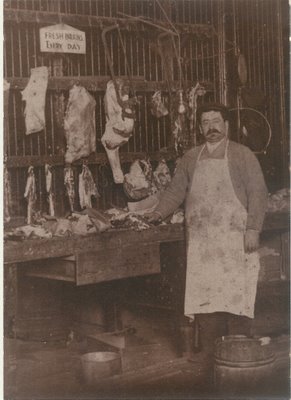


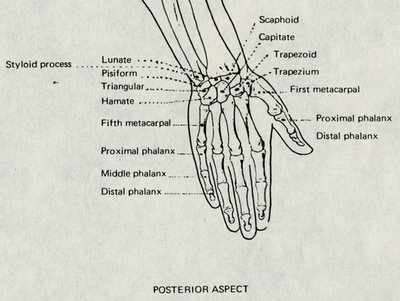


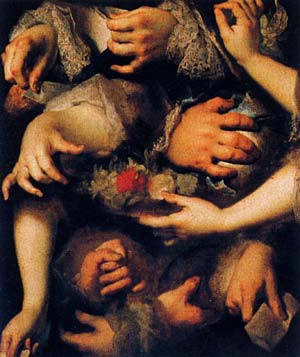
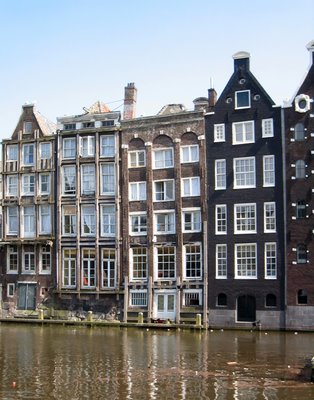
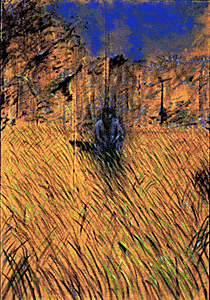

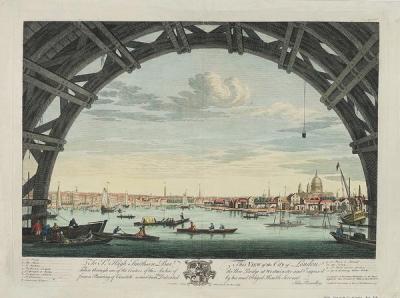





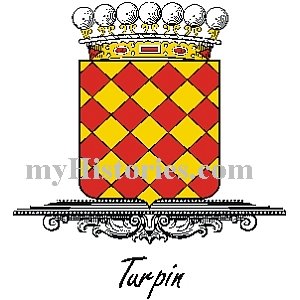


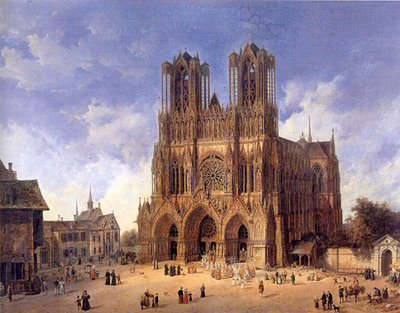


 In the 18th Century the choice of wig for chaps was between the perruke (left), the tie-wig (middle) and the bob-wig (right), all of which could be made in any colour of hair from black to grey.
In the 18th Century the choice of wig for chaps was between the perruke (left), the tie-wig (middle) and the bob-wig (right), all of which could be made in any colour of hair from black to grey. 


